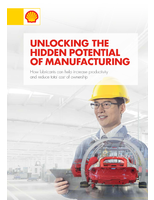ASTM Test Method helps evaluate oil-water mixtures.
Press Release Summary:
ASTM standard F3045, Test Method for the Evaluation of the Stability of Water-in-Oil Mixtures Formed from Crude Oil and Petroleum Products Mixed with Saline Water, will help oil spill responders, oil firms, and laboratories evaluate stability of water-in-oil mixtures. Specifically, standard provides laboratory test method to determine the tendencies of emulsions and mixtures involving crude oils and petroleum products.
Original Press Release:
New ASTM Test Method to Help Oil Spill Responders Evaluate Oil-Water Mixtures
W. CONSHOHOCKEN, Pa., – A new ASTM International standard will help oil spill responders evaluate the stability of water-in-oil mixtures.
Specifically, the new standard (soon to be published as F3045, Test Method for the Evaluation of the Stability of Water-in-Oil Mixtures Formed from Crude Oil and Petroleum Products Mixed with Saline Water) provides a laboratory test method to determine the tendencies of emulsions and mixtures involving crude oils and petroleum products.
ASTM member Mervin Fingas notes that many spilled oils uptake water in several forms, some of which turn into water-in-oil emulsions. Emulsions, which contain 60 to 80 percent water, can change the physical properties of oil, leading to expansion of spilled material and greater difficulty in recovering oil with traditional spill recovery equipment.
“This stability of water-in-oil emulsions can be understood and measured with this new standard,” says Fingas. “The standard reflects the fact that scientists have defined four water-in-oil types that are formed when crude oil mixes with water. Technically speaking, these types are determined by: water resolution over time, several rheological measurements, and visual appearance of the mixture.”
Spill responders, as well as oil firms and laboratories, will use the new standard. The subcommittee that developed F3045 works on spill detection, remote sensing and oil spill modeling. All interested parties are invited to participate in the work of the subcommittee.
To purchase standards, visit www.astm.org and search by the standard designation, or contact ASTM Customer Relations (tel +1.877.909.ASTM; sales@astm.org). Â ASTM welcomes participation in the development of its standards. Become a member at www.astm.org/JOIN.
Helping our world work better
Over 12,000 ASTM standards operate globally. Defined and set by us, they improve the lives of millions every day. Combined with our innovative business services, they enhance performance and help everyone have confidence in the things they buy and use – from the toy in a child’s hand to the aircraft overhead.
Working across borders, disciplines, and industries we harness the expertise of over 30,000 members to create consensus and improve performance in manufacturing and materials, products and processes, systems and services. Understanding commercial needs and consumer priorities, we touch every part of everyday life: helping our world work better.
For more news in this sector, visit www.astm.org/sn-consumer.
ASTM Committee F20 on Hazardous Substances and Oil Spill Response Next Meeting: Oct. 25-26, 2016, October Committee Week, Orlando, Fla.
Media Inquiries:
Nathan Osburn
tel +1.610.832.9603
nosburn@astm.org
Technical Contact:
Mervin Fingas
Edmonton, Alberta, Canada
tel +1.780.989.6059
fingasmerv@shaw.ca
ASTM Staff Contact:
Jeffrey Adkins
tel +1.610.832.9738
jadkins@astm.org



